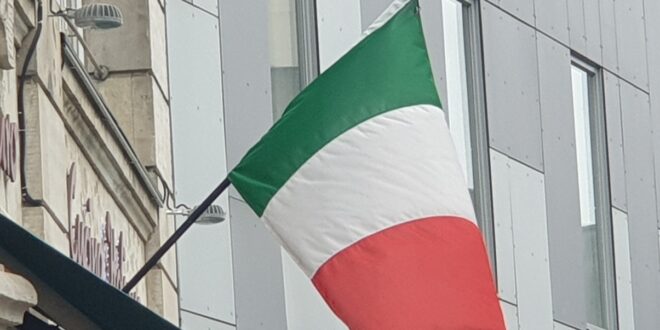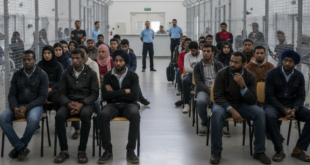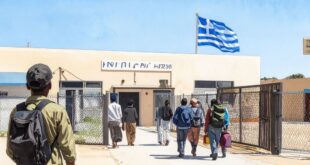Italy has begun implementing a controversial migration deal with Albania, transferring the first group of 40 migrants from Italian detention centres to a facility in northern Albania. The move marks the formal launch of an offshore deportation programme that critics say undermines human rights and legal protections for asylum seekers.
Under the agreement signed between Italian Prime Minister Giorgia Meloni and Albanian Prime Minister Edi Rama, individuals facing deportation orders can now be detained in specially constructed centres in Albania while awaiting removal from Europe. The first such centre, located in Gjader, opened its doors in April 2025 and is now operational.
Originally, the Italian government had planned to use the facilities in Albania for processing asylum claims of migrants rescued at sea. However, Italian courts blocked the move, citing violations of the constitutional right to asylum. This prompted a policy shift: the government issued a decree in March allowing only individuals with final deportation orders to be transferred.
Italy has promised to manage the Albanian centres in line with European standards, but civil society groups and lawmakers who visited the sites recently have raised red flags. The Italian legal advocacy group ASGI described conditions there as opaque and lacking adequate legal safeguards. Concerns were further fuelled after opposition lawmakers reported that at least 16 people transferred to Albania were unaccounted for in official updates.
The Italian model has drawn interest from across Europe. Notably, Sweden’s Minister for Migration, Johan Forssell, has expressed interest in replicating the model for Swedish deportations, pending Italian approval. This could signal a wider European trend towards outsourcing migration control to non-EU countries — a move human rights experts say could weaken legal protections for vulnerable people.
For African migrants, particularly those making the dangerous journey across the Mediterranean from Libya, Tunisia or Algeria, this policy shift could have devastating consequences. Many risk their lives crossing in overcrowded, un-seaworthy boats, hoping to find safety or opportunity in Europe. Under the new rules, those intercepted and deemed inadmissible could face detention in Albania with limited access to legal aid, interpreters or appeals processes.
While the Italian government insists that the centres will not host asylum-seekers and will focus solely on deportations, migration advocates warn that the lines may blur in practice. With courts already challenging the legality of previous transfers, fears persist that genuine asylum claims — including those from African nationals fleeing persecution or conflict — could be prematurely dismissed.
The use of Albania as a base for deportation detentions also creates a legal grey zone, critics say. Since the country is not an EU member state, people detained there may not enjoy the same procedural rights they would on EU soil, they opine.
Sola Jolaoso
 THE AFRICAN COURIER. Reporting Africa and its Diaspora! The African Courier is an international magazine published in Germany to report on Africa and the Diaspora African experience. The first issue of the bimonthly magazine appeared on the newsstands on 15 February 1998. The African Courier is a communication forum for European-African political, economic and cultural exchanges, and a voice for Africa in Europe.
THE AFRICAN COURIER. Reporting Africa and its Diaspora! The African Courier is an international magazine published in Germany to report on Africa and the Diaspora African experience. The first issue of the bimonthly magazine appeared on the newsstands on 15 February 1998. The African Courier is a communication forum for European-African political, economic and cultural exchanges, and a voice for Africa in Europe.


































